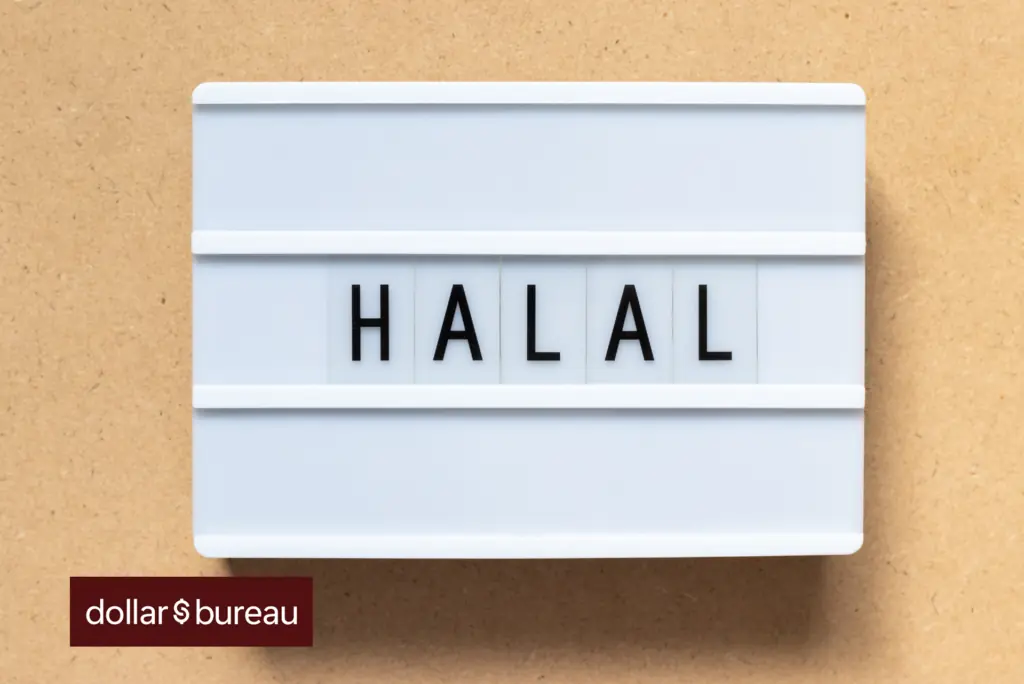Islamic insurance, also known as Takaful insurance, is a unique form of insurance that adheres to the principles of Islamic finance.
Unlike conventional insurance, Takaful operates on the basis of mutual cooperation and shared responsibility among participants.
It follows the principles of Shariah law, which prohibits interest, uncertainty, and gambling.
Takaful insurance provides individuals and businesses with protection against various risks, such as health, life, property, and business-related risks.
The fundamental concept of Takaful revolves around the pooling of funds from participants, who contribute premiums into a common pool.
In the event of a loss or damage, the participants are entitled to receive compensation from this pool, ensuring a collective sharing of risks and benefits.
With the growing global Muslim population and increasing awareness of Islamic finance principles, Takaful insurance has gained significant attention in recent years.
This post aims to explore the concept of Islamic insurance in more detail, delving into its principles, structure, and benefits.
Whether you are seeking ethical insurance options or want to understand the workings of Takaful, this post will provide you with valuable insights into this unique form of insurance.
What Is Takaful Insurance?
Takaful insurance is an Islamic insurance product that involves participants contributing money to a pool to guarantee each other against loss and damages.
A takaful insurance policy is based on Sharia law, which explains how individuals are responsible for cooperating and protecting one another.
Takaful insurance policies cover health, life, and general insurance needs.
Islamic insurance products such as takaful were introduced for the Muslim community seeking Sharia-compliant coverage.
Conventional insurance coverage is believed to violate Islamic restrictions on riba (interest), maysir (gambling), and gharar (uncertainty), which are all prohibited for Muslims
Takaful insurance relies on cooperation, mutual assistance, and solidarity among participants. The takaful fund is accumulated on the following understanding:
- Takaful insurance requires all parties to guarantee one another and contribute to a pool of funds.
- A takaful operator/fund manager manages and administers the takaful fund on behalf of the participants
- Claims lodged by the participants are paid out of the accumulated takaful fund.
- After adjusting for the likely costs of future claims, surplus funds belong to fund participants. Those funds are distributed to the participants as cash dividends or by reducing future contributions.
A takaful insurance contract specifies the risk’s nature and the coverage’s length. Thereby reducing the involvement of gharar.
In order to cover expenses such as sales, marketing, underwriting, and claim management, the takaful operator/fund manager charges an agreed-upon fee.
It’s important to understand that takaful insurance is investment-based, so you’ll have to understand there are investment risks involved and it’s not recommend for everyone.
Principles of Takaful Insurance
The following are the principles that govern takaful insurance:
- Wakala
- Mudharabah
- Tabarru
Wakala
Wakala is an Arabic word for “agency contract”, where a party (the principal) appoints another party (the agent) to perform a particular task or service on their behalf.
Participants in takaful insurance arrangements appoint Takaful operators/fund managers to manage their funds.
The fund manager charges a fixed fee, also known as a wakala fee, for the services they provide and does not share in the surplus or deficit of the fund.
In a takaful insurance arrangement, fund managers provide the following services:
- Underwriting and pricing of takaful products
- Marketing and distribution
- Claims management and settlement
- Investment management of the takaful fund
- Accounting and reporting of the takaful fund
Mudharabah
Mudharabah is an Islamic finance contract involving a partnership between 2 parties: 1 who provides the capital and 1 who provides the expertise.
Unlike wakala, which represents and defines the entire service spectrum of the fund managers, Mudharabah refers to the fund manager’s specific expertise to invest the participants’ accumulated funds in Sharia-compliant avenues.
The mudharabah contract binds the fund manager always to safeguard the participants’ interest, ensure governance, maintain prudence, and exercise professionalism.
Tabarru
Tabarru is an Arabic word that means a voluntary donation or gift that is given by someone to provide mutual help to others.
It refers to the practice of participants donating a portion or all of their takaful contribution to a common fund that helps others in the event that they suffer a loss or damage.
Tabarru is based on the principle of solidarity and cooperation among the takaful members.
As a result of tabarru, the takaful contract eliminates the elements of gharar (uncertainty), riba (interest), and maisir (gambling), making it permissible.
Islam encourages the practice of tabarra, a one-sided contract without any exchanges or compensations.
Why isn’t conventional insurance Sharia-compliant?
Halal insurance plans require Sharia Board approval. An insurance plan must comply with several key elements to obtain Sharia approval.
You may wonder, ‘Why is my conventional insurance plan not Sharia-compliant? ’.
Conventional insurance plans are based on interest payments. In Islam, interest, or Riba, is forbidden.
The interest payments are also derived from the insurer’s investments – which may not be halal.
Hence, the conventional insurance plan is not Sharia-compliant if it contains interest and invests in non-halal investments.
Read our post here to understand more about halal investing.
The basis of premiums for conventional insurance policies is also based on risk speculation.
This means that the insurer assumes the risk and charges premiums based on the likelihood of a claim for each individual.
This is considered gharar (uncertain), which, to some, makes it haram.
How do I choose halal insurance for myself?
You can find halal insurance plans more easily than you think.
About 16% of Singapore’s population is Muslim. As a result, the financial industry is still a long way from being muslim-friendly although it was initiated by the Monetary Authority of Singapore in 2005,.
In recent years, the Monetary Authority of Singapore has introduced regulations for Islamic banking. All Singaporean financial institutions that offer Islamic products are subject to these rules.
In order to choose a Sharia-compliant insurance plan, follow these steps:
Sharia Board Backing
Though Singapore has emerged as a major financial hub, its Islamic finance/investment sector is still developing.
While looking for an insurance plan compliant with Islamic Law, look for companies with a dedicated Sharia board.
In response to the emerging trend of introducing Islamic products in the Singaporean market, a number of financial institutions are now offering Islamic products backed by Sharia boards.
Below are some examples of such institutions:
- Maybank Islamic Singapore
- Franklin Templeton
- Walton
- CGS-CIMB
Muslim-Friendly Financial Advisors
If you are unsure whether an insurance plan complies with Islamic law, you can always seek guidance from Muslim-friendly financial consultants.
- The TAQWA group is a group of Muslim financial advisors operating under AIA Singapore. In addition, TAQWA has trained the most “Million Dollar Round Table” consultants in the finance industry.
- Ascent Islamic is a group of Muslim financial advisors representing Manulife Singapore. They have assisted Muslim families with financial planning and has an independent Sharia advisory board.
- FAiWA is another group of Muslim financial advisors representing Financial Alliance – an IFA that has access to multiple insurers. According to them, they are the largest IFA in Singapore.
Choose a plan that answers your questions
The Islamic-Law compliant insurance plan would be the one that satisfies your religious beliefs.
In this section, we will briefly discuss the key elements of Islamic Law that define what is halal and what is haram.
- It is important to ensure that the pool of funds the insurance provider gathers is invested in halal-related companies or industries.
- An insurance product involving interest-based transactions, such as interest on premiums or claim payouts, would be considered haram.
- Halal insurance policies are those with clearly stated terms and conditions and no hidden clauses or fees.
- The insurance policy shall not be deemed halal if it exploits the insured. Insurance companies may exploit policyholders by charging unfair or excessive premiums.
This article provides more information about halal and haram insurance policies.
Get Fatwa from the Islamic Religious Council of Singapore (MUIS)
A fatwa is an Islamic legal ruling that guides Muslims on various aspects of their faith and lives
The Singapore Muslim community is served by MUIS’ Fatwa Committee, which consists of qualified and respected religious scholars.
If you are uncertain about the products an insurance company offers, you can always refer to MUIS for fatwas regarding insurance.
Why you should get halal insurance?
You can benefit from halal insurance in many ways. For your understanding, we will discuss a few below.
Compliance with Islamic principles
By opting for a halal insurance arrangement, you can comply with the Islamic principles of avoiding riba (interest), gharar (uncertainty), and maysir (gambling) in your financial transactions.
A halal insurance plan also invests your premiums in Sharia-compliant assets and businesses, avoiding those that involve alcohol, pork, gambling, weapons, or other haram activities.
The welfare of the Muslim community
Halal insurance contributes to the welfare of the Muslim community and society as a whole.
Halal insurance policies are often based on takaful, which means “guaranteeing each other” or “joint responsibility”.
Takaful policies involve risk sharing, where policyholders contribute to a pool of funds. Participants’ losses are paid from this pool.
Among Muslims, takaful fosters a sense of solidarity, generosity, and social responsibility.
Transparency
Generally, Takaful insurance companies are more transparent about how their contributions are invested and how profits are distributed.
Knowing that your money is being invested in halal activities gives you peace of mind.
Halal coverage of risks
Like conventional insurance, takaful insurance also provides coverage for various risks, such as health, life, property, and more.
This coverage can provide confidence for individuals and families, knowing they are financially protected in unforeseen events.
Is there a fatwa on insurance for Singaporean Muslims?
In a dynamic society like Singapore, science and technology advancements have led to new questions requiring fatwas to be addressed.
The Islamic Religious Council of Singapore (MUIS) is responsible for issuing religious guidance (fatwa) to the Muslim community.
MUIS has offered the following fatwas on the topic of insurance (not just life insurance):
- Insurance policies with revocable nominations are halal. Revocable nominations are considered contemporary hibah (gifts) by the fatwa committee.
- Islamic law recognises insurance managed by a cooperative company for mutual assistance and services as benevolent cooperation.
- The fatwa committee ruled that cooperative insurance covering unemployment, old age, and workplace accidents is permissible.
- Scholars do not recognise insurance managed by private companies for the benefit of a few individuals, usually at the expense of others.
Choosing an insurance plan based on one’s beliefs regarding insurance is recommended by the Fatwa Committee.
If you’re not from Singapore, it’s also important to look into the fatwas by your country/region, as these might differ.
How can Singaporean Muslims buy Islamic Insurance?
Earlier in the article, we discussed how Singapore’s financial sector in making it more Muslim-friendly is still a work in progress.
This does not mean that Muslims in Singapore cannot take out takaful insurance policies.
In the absence of an absolute product, it is the responsibility of the Muslims to select the one which fulfils the requirements of the Sharia law.
You can buy a Shariah-compliant insurance policy by choosing investment-linked policies offered by providers who offer takaful-based funds.
You may have to look for those investment-linked policies which give the insured party freedom to select the funds in which their premiums are invested.
Here are a few companies offering investment-linked policies that has access to Takaful funds:
- Income Insurance Limited – The company’s investment-linked policies allow policyholders to choose the investment fund they wish to invest in. A takaful fund is offered by NTUC Income based on Islamic principles.
- AIA Singapore – The company offers a variety of investment-linked policies and lets policyholders choose their investment fund. Customers can invest in the Sharia Global Diversified Fund offered by the company.
Co-operative Insurers
Alternatively, you may purchase insurance from co-operative companies/insurers.
Cooperative insurance companies are owned and controlled by their members, who are also the policyholders – similar to how takaful works.
As a socially responsible organisation, co-operative insurance serves the community and its members’ needs, thus adhering to Shariah law.
Previously, NTUC Income was a co-operative – which makes them adhere to Shariah law.
However, it was corporatised in September 2022 and became a public non-listed company.
Despite this, they still maintain their initial value proposition, which is to focus on providing real care to Singaporeans.
They’re also a public company, which according to the fatwa by MUIS, makes their policies possibly halal (as long as you’re not making non-halal investments from them).
Conclusion
By virtue of its nature, takaful is beneficial not just to Muslims but to society as a whole as well.
It promotes social responsibility, mutual assistance, and fosters a sense of solidarity.
However, given the limited options of Takaful insurance in Singapore – Singaporean Muslims will have to consider the limited options or the alternatives available.
Also, given that takaful insurance is investment-based, if you have low risk tolerance or are nearing retirement, it might not be suitable for you as investments will require a long-time period.
If you’re unsure, it’s always best to talk to your imams, a scholar, or even a financial advisor specialising in Islamic finance.










